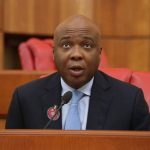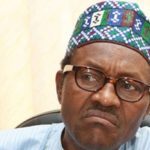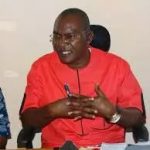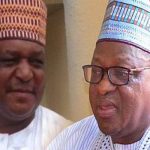Nigeria has long grappled with the issue of corruption, which has had a detrimental impact on its socio-economic development and the overall well-being of its citizens. The Economic and Financial Crimes Commission (EFCC) has been at the forefront of the country’s anti-corruption efforts, tasked with investigating and prosecuting cases of economic and financial crimes.
However, one of the major challenges that the EFCC has faced over the years is leadership instability, which has had significant implications for Nigeria’s anti-corruption war. TVC News Senior Executive, Digital and Social Media, Wasiu Salami, writes on the implications of leadership instability in the EFCC on Nigeria’s anti-corruption war
The EFCC, established in 2003, has seen numerous changes in its leadership, often resulting in a lack of continuity and a loss of momentum in its anti-corruption initiatives. The frequent turnover of leaders has hindered the commission’s ability to formulate and implement long-term strategies to combat corruption effectively. Each new leadership brings its own vision, priorities, and strategies, leading to disruptions in ongoing investigations and creating an environment of uncertainty.
One of the key implications of leadership instability in the EFCC is the erosion of public trust and confidence in the anti-corruption agency. Trust is a crucial element in the fight against corruption, as it encourages citizens to report cases, cooperate with investigations, and support anti-corruption initiatives. When there is a lack of stability and consistency in leadership, people may become skeptical about the commission’s ability to deliver results, leading to decreased public participation and cooperation.
Moreover, leadership instability in the EFCC often results in a loss of institutional memory and expertise. Experienced personnel who have been working on high-profile corruption cases may be reassigned or replaced with each change in leadership. This disrupts ongoing investigations and leads to a loss of valuable knowledge and insights gained from years of experience in tackling complex financial crimes. The absence of continuity hampers the progress made in fighting corruption, as new leaders need time to familiarize themselves with ongoing cases and develop effective strategies.
Another implication is the potential for political interference in the anti-corruption efforts. Changes in leadership can be influenced by political motivations, as different administrations may seek to install leaders who align with their interests or who they believe will protect their allies. This political interference can undermine the independence and autonomy of the EFCC, compromising its ability to carry out impartial investigations and prosecutions. When the anti-corruption agency is seen as being influenced by political considerations, it raises doubts about the credibility and integrity of its actions.
The lack of stability in leadership also affects international cooperation in the fight against corruption. Nigeria relies on partnerships and collaborations with other countries to track and repatriate stolen assets, gather evidence, and extradite fugitives. However, frequent changes in leadership make it difficult to build trust and establish strong working relationships with foreign counterparts. International partners may question the commitment of the Nigerian government to the anti-corruption cause and be hesitant to share sensitive information or cooperate on joint investigations.
To mitigate the implications of leadership instability in the EFCC, several measures can be taken. First and foremost, there should be a clear and transparent process for the appointment of EFCC leadership, ensuring that it is based on merit and expertise rather than political considerations. This would help maintain the independence and integrity of the commission.
Secondly, efforts should be made to strengthen institutional capacity and expertise within the EFCC. Training programs, career development opportunities, and knowledge-sharing platforms can help build a skilled and experienced workforce that can sustain the fight against corruption, regardless of changes in leadership.
Lastly, there should be greater emphasis on long-term planning and strategic continuity. The EFCC needs to develop comprehensive and sustainable anti-corruption strategies that transcend individual leadership tenures. This can be achieved by establishing clear objectives, performance indicators, and monitoring mechanisms that ensure accountability and provide a framework for successive leaders to follow.
In conclusion, leadership instability in the EFCC has significant implications for Nigeria’s anti-corruption war. It undermines public trust, erodes institutional memory, invites political interference, and hampers international cooperation. To effectively combat corruption, it is crucial to address this issue by ensuring transparent leadership appointments, strengthening institutional capacity, and promoting strategic continuity. Only through sustained efforts and a stable leadership can Nigeria make significant progress in its fight against corruption and foster a culture of transparency and accountability.














